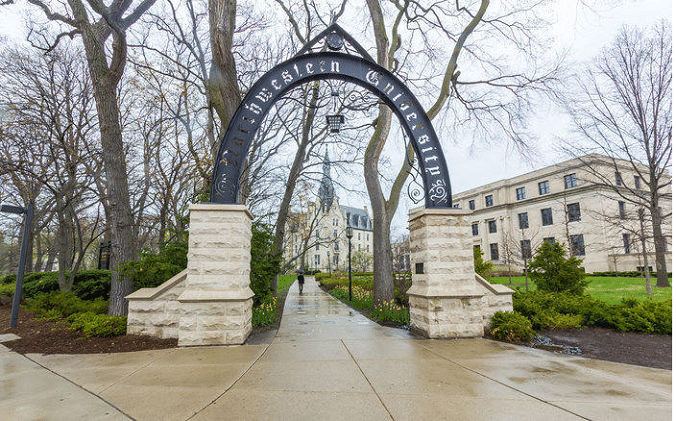Introduction
When it comes to pursuing a law degree at a prestigious institution, Northwestern Pritzker School of Law remains one of the top choices in the United States. The school is known for its innovative curriculum, strong alumni network, and a reputation for producing top-tier legal professionals. However, gaining admission into Northwestern Law is highly competitive, making the northwestern law school acceptance rate an essential factor for any prospective student to consider.
This comprehensive guide will explore the northwestern law school acceptance rate in detail, including historical trends, requirements, and valuable tips for enhancing your chances of admission. Whether you’re an undergraduate student preparing for law school or a working professional considering a career change, understanding the acceptance dynamics at Northwestern can give you a significant edge.
Overview of Northwestern Law School
Northwestern Pritzker School of Law, located in Chicago, Illinois, is one of the oldest and most respected law schools in the country. It offers JD, LLM, and executive education programs, attracting students from across the globe. As part of a prestigious private university, Northwestern maintains high academic standards, and its competitive admission process is reflected in the northwestern law school acceptance rate.
The school prides itself on its focus on practical legal training, interdisciplinary education, and a strong emphasis on leadership skills. Students benefit from the vibrant Chicago legal market, internships, clerkships, and a wealth of networking opportunities.
Northwestern Law School Acceptance Rate: Historical Trends

The northwestern law school acceptance rate has fluctuated over the years due to factors such as application volume, changes in admission policies, and market demand for legal education. Historically, Northwestern has maintained an acceptance rate in the range of 15% to 25%, placing it among the more selective law schools in the United States.
In recent years, as the legal field becomes increasingly competitive, the acceptance rate has trended lower. This indicates not only the rising demand for seats at Northwestern but also the school’s commitment to selecting candidates with outstanding academic records, LSAT/GRE scores, professional experience, and leadership potential.
For applicants looking at the 2025 cycle, it is essential to recognize that acceptance is not solely based on numbers but also on the applicant’s overall profile, including personal statements, recommendation letters, and extracurricular achievements.
Admission Requirements for Northwestern Law School
Understanding what it takes to secure a spot at Northwestern is crucial. Below are the main components evaluated during the admissions process:
- Academic Performance – High undergraduate GPA is critical.
- Standardized Tests – Strong LSAT or GRE scores are essential, often above the 165+ range for competitive applicants.
- Professional Experience – Northwestern values work experience and leadership skills more than many peer schools.
- Personal Statement – A compelling narrative that reflects your motivations, experiences, and future goals.
- Letters of Recommendation – Strong endorsements from academic or professional references.
- Interviews – Some candidates may be invited for interviews to further assess their fit for the program.
Each of these elements plays a role in determining the northwestern law school acceptance rate for each cycle.
Factors Affecting the Northwestern Law School Acceptance Rate
Several factors contribute to variations in the northwestern law school acceptance rate:
- Application Volume: A surge in applications can drive down acceptance rates.
- Economic Trends: During economic downturns, law school applications often rise.
- Diversity and Inclusion Efforts: Northwestern actively seeks a diverse student body, which can influence acceptance strategies.
- Dual Degree Popularity: Programs like JD-MBA attract candidates with exceptional credentials.
Tips to Improve Your Chances of Admission
Securing admission to Northwestern Law requires a strategic approach. Here are some tips:
- Focus on Academic Excellence: Aim for a competitive GPA and standardized test scores.
- Gain Relevant Experience: Internships, legal work, or leadership roles enhance your profile.
- Craft a Strong Personal Statement: Showcase your unique strengths and career goals.
- Prepare for Interviews: Practice communication and professional presentation skills.
- Network with Alumni: Gain insights into the school’s culture and expectations.
These steps can significantly boost your chances despite the competitive northwestern law school acceptance rate.
Frequently Asked Questions
- What is the current northwestern law school acceptance rate?
- It typically ranges between 15% and 25%, but it can fluctuate annually.
- Do I need work experience to apply?
- While not mandatory, Northwestern values applicants with professional experience.
- What is a competitive LSAT score for Northwestern?
- Generally, scores above 165 are considered competitive.
- Can I apply with a GRE instead of an LSAT?
- Yes, Northwestern accepts GRE scores in place of the LSAT.
- Does Northwestern conduct interviews?
- Yes, some candidates may be invited for interviews during the admission process.
Conclusion
Understanding the northwestern law school acceptance rate is vital for anyone considering applying to this prestigious program. By analyzing past trends, meeting academic and professional requirements, and presenting a strong personal profile, applicants can position themselves for success.
Northwestern’s selective nature means that each application component carries weight, from GPA and LSAT/GRE scores to essays and interviews. For prospective students, focusing on holistic preparation is the key to navigating the competitive northwestern law school acceptance rate effectively. With the right planning and effort, your dream of studying at Northwestern can become a reality.

